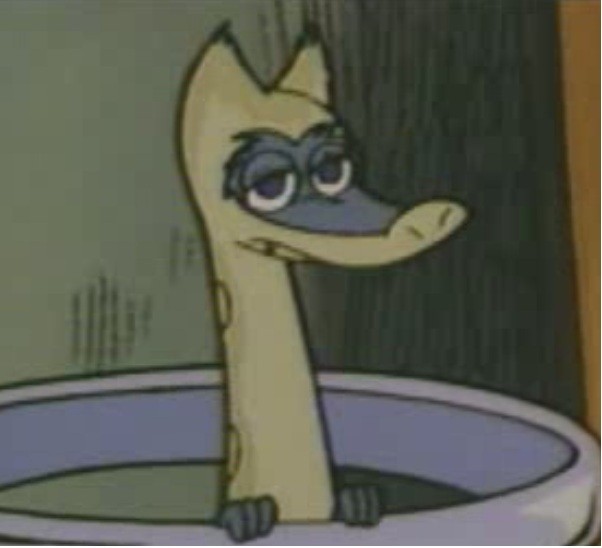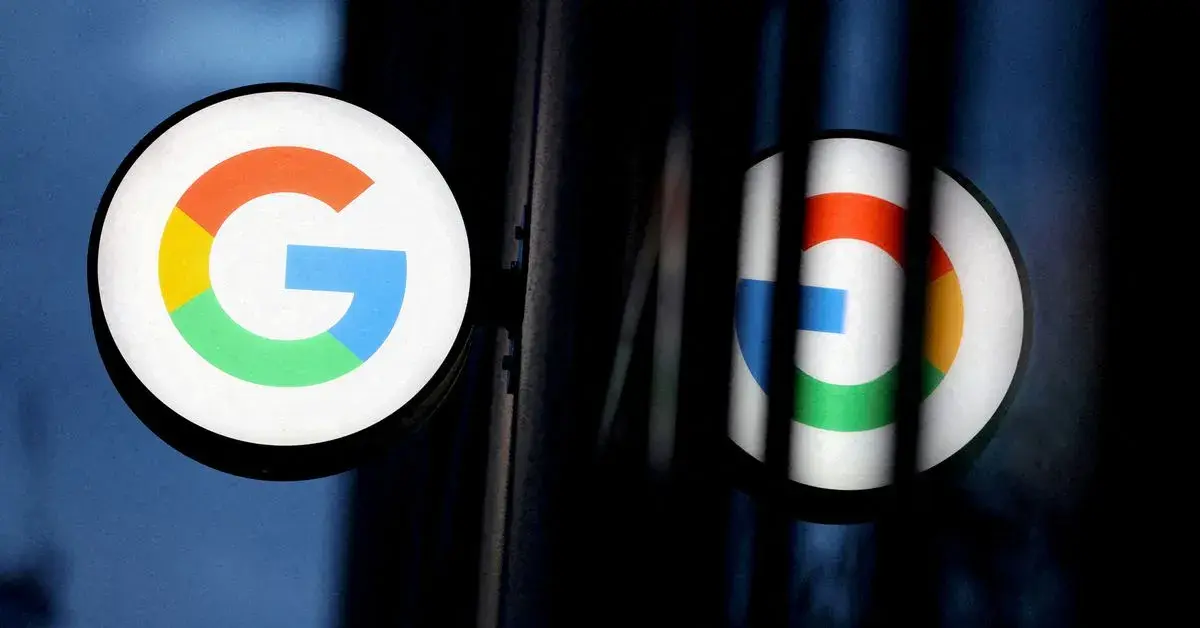Eastern District of Texas: The one-stop forum-shopping choice of patent trolls everywhere.
Quite literally the opposite of patent trolling. The company invented something. Acquired a patent. Tried to sell a license to google. Google left the negotiating table. And then not long after introduced a product that fulfilled all of the requirements to be protected by the patent licensing they hadn’t paid for.
I hate patent trolls. These are not patent trolls. These are people the patent system is meant to protect. These are people who developed a product and wanted compensation for all the time and money they spent developing it. And they got it 10 years later, and probably didn’t get as much total as they could have if Google hadn’t fucked them over
So they ‘invented’ moving video from a small device to a large device in 2010? That’s a dumb patent and they are trolls. I hate google, but patents like that are stupidly vague and stifle progress.
Exactly. That’s not an invention, and “using” your absurdly uninnovative idea that no intelligent person could possibly consider granting a patent for doesn’t make you not a patent troll.
Pinch to zoom?
Rectangular screen?
Depends on what exactly was covered in the patent. The article only says
invented technology in 2010 to “move” videos from a small device like a smartphone to a larger device like a television.
Which is vague and an obvious bogus patent. Prior art exists in both the digital and analogue space
The full patent goes into detail (pdf): https://image-ppubs.uspto.gov/dirsearch-public/print/downloadPdf/8356251
It details a process of synchronising videos between multiple devices and a content server, as well as a few different variations of the idea - it doesn’t just cover what Chromecast does.
The telling point here is that Google didn’t even try to argue that they didn’t use this method. Instead, they tried to argue that the patent was invalid. Apparently, they did not manage to invalidate the patent.
After looking at the patent it’s clear it’s way too vague, generic and obvious. It should never have been granted. (I Am Not A patent Lawyer). For one the XMBC web interface from 2009ish is prior art.
Technically the Kodi remote control app would be in violation of the patent, except it doesn’t use any “back end server system”.
If you replace the words “display” and “video” with “speaker” and “audio” then the Spotify app would be in violation as well, as it allows changing the playback device to any of your logged in devices.
Come to think of it, if you use Firefox on mobile to access YouTube, then “send tab to other device”, and send it to a desktop computer connected to a big screen, it could be interpreted as violating the patent as it’s using Mozilla’s “back end server” to relay the message
XMBC web interface just streams to a different client. Here, we have a client requesting to stream to another client, and synchronised by the server. The key part is the synchronisation between multiple clients.
The patent also deals with a few other types of concurrent streams for other applications, beyond what Chromecast does.
Come to think of it, if you use Firefox on mobile to access YouTube, then “send tab to other device”, and send it to a desktop computer connected to a big screen, it could be interpreted as violating the patent as it’s using Mozilla’s “back end server” to relay the message
That may well also violate the patent. It would likely depend on whether the devices are synchronised, or if the desktop is just getting a link and streaming separately.
Just because lots of people use it without paying doesn’t make a patent invalid. You only have to look at what happened with the patent for WiFi.
These aren’t really patent trolls, though. They made a technology, patented it and produced a product. Google met with them, but decided not to pay for the patent owner’s technology and made their own instead.
“Made a technology”
Did they actually make anything, or did the CEO just patent an idea without ever putting it in production?
Because latter would be the textbook description of patent trolls. An idea is just an idea, if you can’t execute it, the patent should be null and void.
On another note I have to say that such an obvious solution of “moving content from a small screen to the big screen” should hardly be patentable. It’s quite literally just RPC, which has been in use in various shapes and forms for over 60 years.
A couple quick searches and a skim read, they’re offering their technology under their main brand Touchstream as well as another called Shodogg. It’s not the same as Chromecast of course, but as the patent holder they have a right to market the technology as they see fit.
I haven’t looked at the patents themselves, but I reckon it’s a bit more involved than and significantly different enough to a simple remote procedure call. It’s not like a server delivering video to a client, instead it’s switching from displaying on the server to the client. RCP is initiated by the client, while casting is initiated by the server.
This really seems more like Google trying to get away with not paying an inventor than an inventor sitting on their patent and denying society the fruits.
Nothing you mentioned even vaguely resembles an invention.
From Wiki:
An invention is a unique or novel device, method, composition, idea or process.
This is a novel method and process. Sure, anyone could imagine putting something on one screen to another, but apparently no one came up with an implementation until 2011.
The patent in question (the articles suggest 3 patents, but they’re all basically the same): https://patents.google.com/patent/US8356251
So it’s a process that’s a little more involved than just “display this video on that screen”.
No, it’s not unique or novel in any way.
That entire patent is technobabble that means “send content to a display”. There is nothing about it that’s in any way innovative or that it’s even possible that they were one of the first 1000 people on the planet to think of.
The entire premise of allowing people to “invent” extremely obvious, extremely simply things is an obscenely broken system. Submitting a patent application for this shouldn’t just get rejected. It should get you permanently barred from ever being able to submit or own a patent until the end of time.
The full patent can be found here (pdf): https://image-ppubs.uspto.gov/dirsearch-public/print/downloadPdf/8356251
This goes into many details about the process of synchronising the video between devices, as well as a variety of different methods which the process can be implemented (it doesn’t just cover what Chromecast does).
I haven’t checked the other 2 patents quoted, maybe in the full article they show some differences (the figures are all the same, though).
That entire patent is technobabble that means “send content to a display”. There is nothing about it that’s in any way innovative or that it’s even possible that they were one of the first 1000 people on the planet to think of.
The figures show and the full patent describes a number of processes that define exactly how it’s done. It’s not technobabble, but a process. Overall it does “send content to a display”, but it’s the way it’s done that makes it patentable.
If you were to develop a process that was different and didn’t use the methods claimed in the patent, it wouldn’t be patent infringement. However, apparently Google’s method does use this process - they didn’t even try to argue against this, instead they claimed the patent was invalid. I haven’t seen Google’s specific arguments on this matter so I can’t really comment on it, other than to say the jury didn’t agree with Google.
The entire premise of allowing people to “invent” extremely obvious, extremely simply things is an obscenely broken system. Submitting a patent application for this shouldn’t just get rejected. It should get you permanently barred from ever being able to submit or own a patent until the end of time.
So you just have a bee in your bonnet about patents in general. I see.
The patent system is far from perfect, but it isn’t completely broken, as you might claim. For an example of it working properly, you only have to look at your phone - chip designer ARM designed almost all the processors in your phone; they patent the designs and then license them out to manufacturers such as Samsung and Qualcomm. These other companies lack the technical ability to develop processors, while ARM lack the manufacturing capability to mass produce them. Patents allow the two groups to work together to produce the product you rely on every day.
I think you should try and focus on patents that actually aren’t properly thought out, eg Apple’s design patent for a rectangle inside a rectangle with rounded corners.
Big tech are biggest trolls out there.
Are they still trying to patent a rectangular screen? Or pinch to zoom?
Google spokesperson Jose Castaneda said on Monday that the company will appeal the verdict and has “always developed technology independently and competed on the merits of our ideas.”
Bull. Good for them, glad the small guy won out, hopefully it doesn’t get overturned on appeals. Google/Microsoft/Amazon/Apple have always stolen IP once they got big enough, usually with the hopes of either A) buying the little guy out or B) running them out of business. Glad the little guy one out for once.
Google doesn’t need me to defend them, but the patents in question seem really generic and obvious…
Play control of content on a display device
Play control of content on a display device
Play control of content on a display device
All filed in 2011.
Patent trolls aren’t the little guy, nor are they a good thing for the little guys out there.
The full patent goes into much more detail of the process: https://image-ppubs.uspto.gov/dirsearch-public/print/downloadPdf/8356251
Google didn’t even argue that they didn’t use this patented process. They tried (and failed) to argue that the patent was invalid.
Thanks for the link, but I already provided links to all three patents (confusingly, with the same names) that they were making claims on in my reply.
The thing about patents is that they are regularly granted for blindingly obvious processes that should never be patentable. It’s not just companies like Google that get screwed by this, it’s individual developers, FOSS projects… All sorts.
The patent system is fundamentally broken.
Lmfao when I was looking at the Google links earlier (I found them myself in another comment) I didn’t scroll down to the full text on their page…
I don’t think this is blindingly obvious though. The obvious implementation would be to stream from the server to your phone, then your phone to the other screen. These patents detail a way of synchronising the devices and having the server stream directly to the screen, alongside your controlling device. That implementation might seem straightforward, but it is novel, if only because no one else had done it prior. If someone had done this prior to their application then maybe the patent could be invalidated, but that doesn’t seem to be the case.
The patent system definitely has its flaws, but I don’t think this patent is an example of that. They’re not sitting on the patent doing nothing, they have their own implementations that they’re selling, and were in negotiations with Google for them to use it. Google are just trying to get away without paying for things - just like they take our data and profit from that without paying us for producing it.
Google will appeal so they haven’t won yet. The next jury might believe them to be patent trolls. Who knows.
One third of one billion dollars? Google can find that in the couch.






